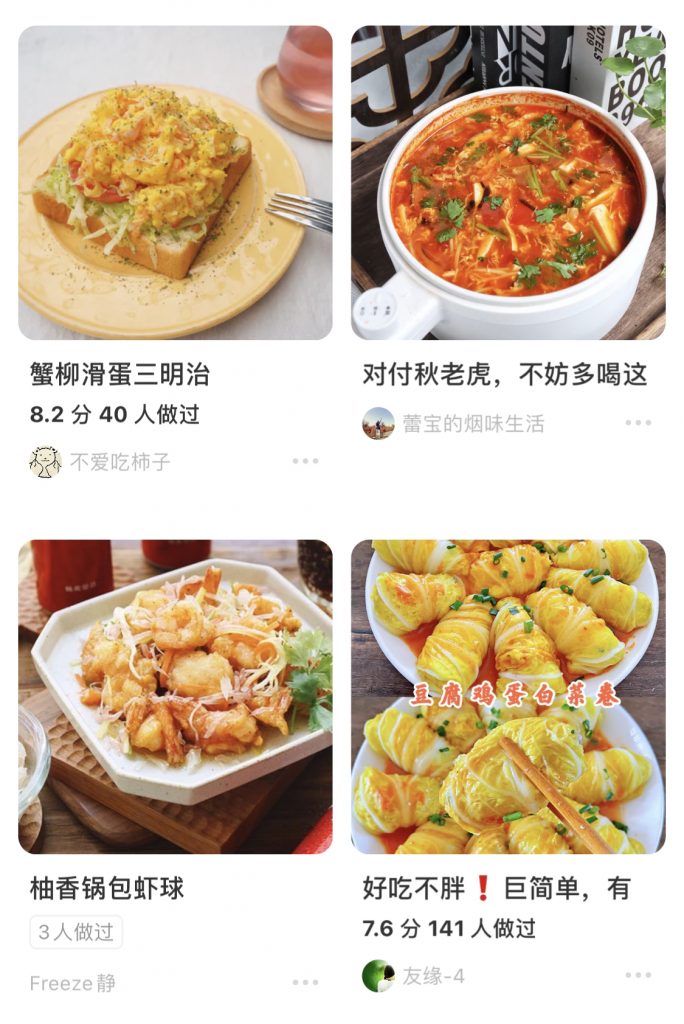I believe many of us can relate to this: you move into your first ever own apartment, away from your parents and the town you grow up in. Then, suddenly, you are in charge of all the chores you can imagine. You are now housekeeping, or “adulting,” as I like to call it.
For me, the most challenging part of “adulting” is cooking. Growing up in a Chinese household, cooking is an essential part of one’s social and cultural life. To cook well is an applaudable life skill almost equivalent to excel in public speaking. As my mother is a brilliant cook (and neighborhood-renowned), I naturally wanted to rely on her to pass down her endless knowledge of Chinese culinary. So it was to my unpleasant surprise when she answered my plead with “search it up on Google, they have all the recipes.” I obviously did not take the rejection lightly.
On the contrary, the renouncement got me thinking about the digitization of culinary and recipes. When I was little, recipes (especially the self-invented ones) were treated as sacred texts. They are family secrets and, when being followed, always guarantees a delicious dinner. The unnamed spices, the highly complicated process, the luring smell coming from the sweaty kitchen. Of course, I definitely don’t mean to accuse internet recipes of performing poorly. Still, the mythical aroma (see Barthes) the phrase “family recipe” carries is incomparable.
On the other hand, internet recipes are photo-rich and visually appealing, filled with personal yet impersonal stories written with overwhelming warmth and excessive love. I’m sure everyone has that one time where they tried to find a recipe but ended up having to scroll past a 3000-words life story about “how I learned this recipe from my great-grandmother’s neighbor’s sister and now I’m a divorcee with three kids.” Although on the bright side, they even have a “metric” to American button which a function after my own heart. Not to mention the rigid table at the end of every recipe featuring the amount of nutrition and calories from every dish. Website recipes take full advantage of its media – that is, the web, to yield information that wouldn’t be possible to have in a standard hand-written recipe.
As I reluctantly summon a new tab on Chrome and search the phrase “curry chicken recipe easy fast,” I still think about my mother’s decision that led me to this situation. Can the old-timey traditions can be replaced easily by their digital counterparts? What is lost in the process? What are the disadvantages and advantages of this shift? To think that recipes are passed down orally instead of written in even earlier generations, and how far we have come from the very beginning of time…I feel I’ve become a mere gear of the ever-changing digital society that Simon Lindgren so passionately discusses in his book.

But it is not all bad news and no sunshine. By utilizing the vast internet for my culinary interest, I get to be a part of a grand cooking community where literally everyone can share their own recipes. In addition to that, I get to rate and ask questions about every recipe and will get a response in almost real-time. And most importantly, recipes aren’t limited to texts anymore – a good recipe can be a short video, a collage of photos, and even an audio (podcast).
After a year of living on my own and cooking curry chicken a dozen times, I have fully embraced this culinary lifestyle and let go of my tiny grudge on not obtaining the “mysterious” home recipes from my mom (who later confessed she also mainly uses online recipes). We even started to exchange recipes that we found online and are deemed worthy, so who am I to complain further?


Recent Comments